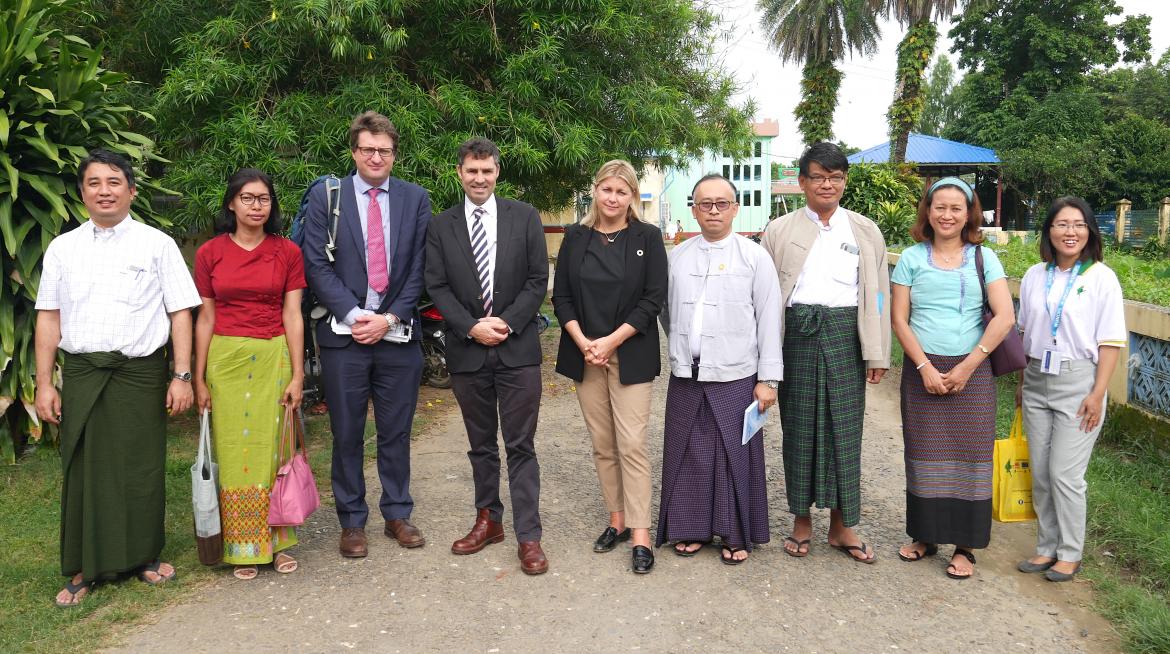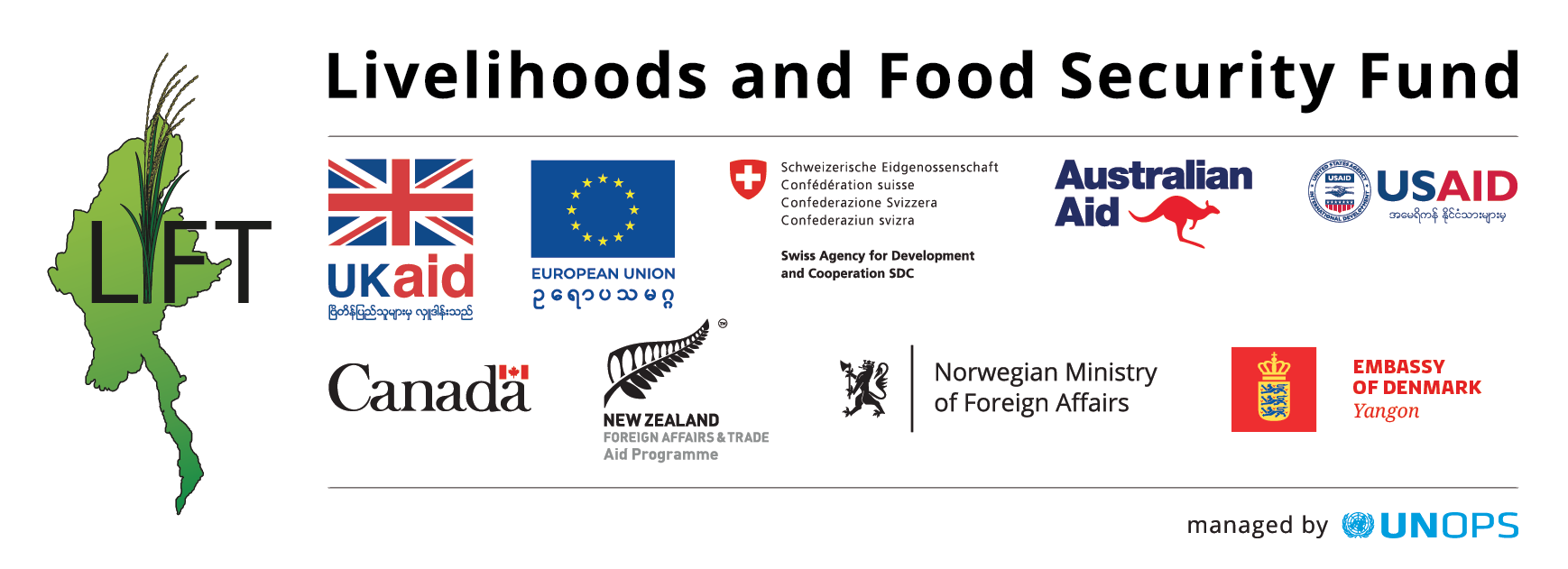
A high-level UK delegation visited Sittwe in the first week of October to receive a thorough overview of LIFT’s work and projects in Rakhine, one of the least developed states in the country in the grip of an ongoing ethnic armed conflict.
Parliamentary Under-Secretary of State for International Development Baroness Sugg along with a UK Aid/Foreign and Commonwealth Office delegation were given an update on the implementation of LIFT’s Rakhine Programme and they met with some of the programme implementing partners. The visit included a meeting with Rakhine State Government representatives – the Chief Minister, State Secretary and the State Security Minister - and a tour of Sittwe General Hospital. The guests met UN agency representatives over lunch, discussing the overall context in the state and recent developments, operational challenges and the possibility of the building of a humanitarian-development nexus for Rakhine.
Baroness Sugg said: “The problems created by 70 years of civil war and 50 years of military rule are deep-seated, long-term issues that will require patience to resolve.
“I have seen how UK Aid is making a real difference in Rakhine, and we will continue to support the most vulnerable people across Myanmar, to help the country bring about long term, sustainable and inclusive change”.
Nicolas Guillaud, LIFT’s Rakhine Programme Livelihoods and Food Security Specialist, recapped LIFT’s strategy and programme priorities in the state and noted that the main beneficiaries of LIFT’s programming in Rakhine are women, children under the age of two, internally displaced people (IDPs) and people affected by the conflict in general. He also highlighted some challenges and opportunities, such as access restrictions and the issue of social cohesion, a challenge but also an opportunity for a stronger focus in LIFT’s future work.
He said: “It is LIFT’s objective to reach the most vulnerable people in Rakhine, providing assistance to all beneficiaries irrespective of ethnicity, based on need. We help them find sustainable livelihoods and support them to become more resilient to possible shocks, with Rakhine state being especially prone to climate-related disasters.”
Different aspects of the ongoing conflict in the state were discussed in the context of the continuing segregation of different ethnicities, with people being confined to camps with limited freedom of movement and near-non-existent livelihood opportunities. The need for a coordinated approach by the international community, including UN agencies and donors, was raised by Baroness Sugg. The representatives from some of LIFT’s partners in Rakhine, highlighted the challenges they face when delivering assistance and implementing their projects on the ground, most of the work taking place in the IDP camps.
The biggest challenge for the partners is gaining access to beneficiaries, which requires securing travel authorisations by the state authorities, a laborious process that creates uncertainties for project delivery and sustainability. Other issues mentioned were camp closures and the possibility of Rohingya IDPs returning from Bangladesh to Rakhine in the future. LIFT underlined the importance of finding localised solutions and adopting an incremental approach to affecting change, including coordinated, efficient advocacy.
Finally, the UK donor delegation was also briefed on the central role Rakhine State has played for LIFT’s flagship nutrition programme, the Maternal and Child Cash Transfer (MCCT) programme. The initiative started through a pilot project in Rakhine and is now being rolled out by the Myanmar Government in other parts of the country.


